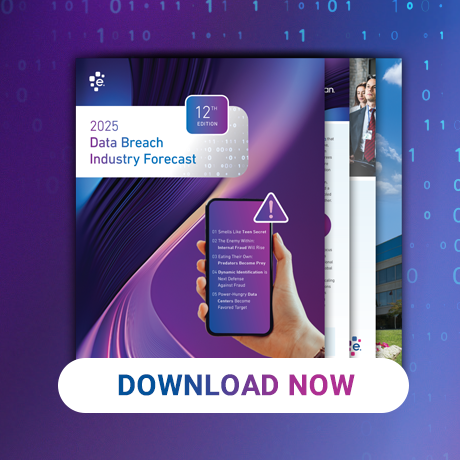At A Glance
aag optionalthis is heading!

kjdaskldj
some company name herekdljsaldkjlska
Docker is an open-source project to easily create lightweight, portable, self-sufficient containers from any application. The same container that a developer builds and tests on a laptop can run at scale, in production, on VMs, bare metal, OpenStack clusters, public clouds and more.
Docker is an open-source project to easily create lightweight, portable, self-sufficient containers from any application. The same container that a developer builds and tests on a laptop can run at scale, in production, on VMs, bare metal, OpenStack clusters, public clouds and more.


thisis a contet t for medai text block!
Paragraph Block- is simply dummy text of the printing and typesetting industry. Lorem Ipsum has been the industry’s standard dummy text ever since the 1500s, when an unknown printer took a galley of type and scrambled it to make a type specimen book. It has survived not only five centuries, but also the leap into electronic typesetting, remaining essentially unchanged. It was popularised in the 1960s with the release of Letraset sheets containing Lorem Ipsum passages, and more recently with desktop publishing software like Aldus PageMaker including versions of Lorem Ipsum.


Heading 2
Heading 3
Heading 4
Heading 5
- This is a list
- Item 1
- Item 2
- Sub list
- Sub list 2
- Sub list 3
- More list
- More list 2
- More list 3
- More more
- More more
This is the pull quote block Lorem Ipsumis simply dummy text of the printing and typesetting industry. Lorem Ipsum has been the industry’s standard dummy text ever since the 1500s,
ExperianThis is the citation

This is the pull quote block Lorem Ipsumis simply dummy text of the printing and typesetting industry. Lorem Ipsum has been the industry’s standard dummy text ever since the 1500s,
ExperianThis is the citation
| Table element | Table element | Table element |
| my table | my table | my table |
| Table element | Table element | Table element |

Media Text Block
of the printing and typesetting industry. Lorem Ipsum has been the industry’s standard dummy text ever since the 1500s, when an unknown printer took a galley of type and scrambled it to make a type specimen book. It has survived not only five centuries, but also the leap into electronic typesetting, remaining essentially unchanged. It was popularised in the 1960s with the release of Letraset sheets containing Lorem Ipsum passages, and more recently with desktop publishing software like Aldus PageMaker including versions of Lorem Ipsum
My Small H5 Title


Patients ideally should know what they’re going to owe when they show up for an appointment – the last thing they need is a big financial surprise to add to the stress of their visit. Similarly, doctors, nurses, hospitals and all healthcare providers help people to stay healthy day in and day out. Providers should be able to go to sleep at night knowing that they’ll be fairly compensated for the work that they do. However, making that happen isn’t easy. Behind the scenes, contracts, benefits and eligibility between medical groups, hospitals and insurance payers are fairly nuanced and complex. Clients benefit when it comes to how much a patient owes a hospital or medical group after treatment, rough estimates aren’t ideal – perfection is difficult/ create problems and issues. Billing must have pinpoint accuracy and add nuance based on unique contract terms that all medical groups and hospitals sign with their employers and payers. The details can actually be quite difficult to keep straight, and there is an extensive amount of variation in each contract’s rules. Experian Health works to make payment transparency the norm, so that patients know what to expect and healthcare providers are paid fairly, accurately and in a timely fashion. I began working for Experian in 2004 but my interest in product development and research eventually led me to Experian Health. My team of more than 100 Experian employees painstakingly reviews contracts, patient eligibility, benefits information and historical claims to generate an accurate fee estimate for each patient’s medical visit. Nuance/aiding are helping to work toward this. We utilize up-to-date technology that organizes all the information we find in an extensive database and review the claims on behalf of both our medical group clients and patients. The biggest challenge for me and my team is anticipating both patients’ and hospitals’ future needs and innovation in the field. Any time healthcare policies are changed or reimbursement guidelines shift, it affects our clients and requires nimble thinking on our part. How do we ensure that our technology is as modern as possible and our team members stay current on the latest trends and news? I’m looking forward to seeing how we continue adapting in the future.

I’m the Managing Director of Serasa Experian, meaning I work with Experian’s Business Services Unit to identify how data can unlock new opportunities for businesses across Brazil. I worked in the banking industry for more than twenty years, but joined Experian two years ago because I was excited by the company’s innovative use of data to solve real-world problems. I regularly work with small businesses in Brazil and hear firsthand about the challenges they face. From client conversations and recent data analysis, my team discovered that companies across the country were having difficulty identifying trustworthy suppliers for their supply chain. In fact, a recent Experian survey found that eight percent of suppliers pose risks to their business partners due to labor, tax or environmental problems. Verified background information – such as financial history and risk of default – are surprisingly difficult to find, making it difficult and time-consuming for small businesses to find trustworthy supply chains. We knew there had to be a simpler way to match companies. That’s why we created Serasa Conecta, an online marketplace that connects verified suppliers with verified buyers. Using Seresa Conecta, a buyer of a clothing store, for example, can register a customized page and scroll through the pages of trusted retail suppliers who can partner with their business. Suppliers, on the other hand, can use the portal to identify new customers to help increase sales and build their reputation. On the backend of the marketplace, Experian analyzes each company’s background, and can help determine which companies could forge the best partnerships based on simple reports and balance sheet analyses. Whenever a buyer selects a supplier, Experian also runs a risk assessment of both parties to ensure it’s a good fit. When Serasa Conecta was launched, buyers and suppliers in Brazil were thrilled by the marketplace’s ability to both increase sales and verify safe companies quickly and easily. I take pride in knowing my team and I have made a positive impact on thousands of small businesses in the country. Although I have only been at Experian Serasa for two years, I am excited to see how data can continue to unlock opportunities, connecting communities and improving the lives of companies around the world.

Today’s world runs on data. We all leave footprints in the digital world, from the profiles we build of ourselves online, to the countless internet searches we conduct each week, to the information we share via a myriad of apps downloaded on a multitude of devices. The proliferation of new technologies has meant that those footprints – the information and data generated through our digital actions – are seen, recorded and analysed, not only by the service providers but often by their partners as well. Data is everywhere. The quality, management and understanding of that data is crucial for both businesses and society. It allows businesses to develop better products and services, and it is also the key to building better relationships with consumers. To build those relationships, we (the business community) must recognise that the information belongs first and foremost to the consumer. It is their data. We are its custodians, and we must act accordingly, to make sure that people understand and are comfortable with our sight and use of that data. We must be able to build trust, while meeting all the associated obligations that come with the responsibility of managing huge volumes of personal information in a complex digital world – prioritising security and transferring that data both safely and efficiently. At Experian we process over 1.5 billion records a year. We believe data can empower, and we want to help people understand the positive role that it can play in their lives and how it can help improve their financial circumstances. To do that, we must understand how good that understanding is today. How far have consumers come on the ‘data journey’? Do they appreciate the control they have, their rights, and access to their data? Do they trust the caretakers of that data to do the right things with it, to protect it, to manage it and to look after on their behalf? Getting this right is more than just important. It is the responsibility of companies like ours to help people understand what information exists about them, where it goes, what it means, and how they can use it better. In May next year, the arrival of the EU’s General Data Protection Regulation (GDPR) will see a new enforced focus on consumer rights in this space. We will also see the advent of new data driven initiatives such as Open Banking, designed to give consumers more freedom to choose the products and services that work for them. These initiatives make it imperative for the business community to find better ways to communicate with consumers about why we have their data, what we do with it, and how they can use it and control it in the way they’re most comfortable with. We have commissioned research into people’s attitudes to data to help us, and you, understand how people in Britain feel about the way their data is kept and used today. We’ve done it because we want to have this conversation both with the business community and with people themselves. It’s their data, and we want to make sure they’re empowered, comfortable and confident in where it is and how it is being used. True innovation can only be fostered in an environment of understanding and trust. We hope this is the first step in building that together. Read our whitepaper on the UK’s attitudes towards data here.
In this article…
typesetting, remaining essentially unchanged. It was popularised in the 1960s with the release of Letraset sheets containing Lorem Ipsum passages, and more recently with desktop publishing software like Aldus PageMaker including versions of Lorem Ipsum.

